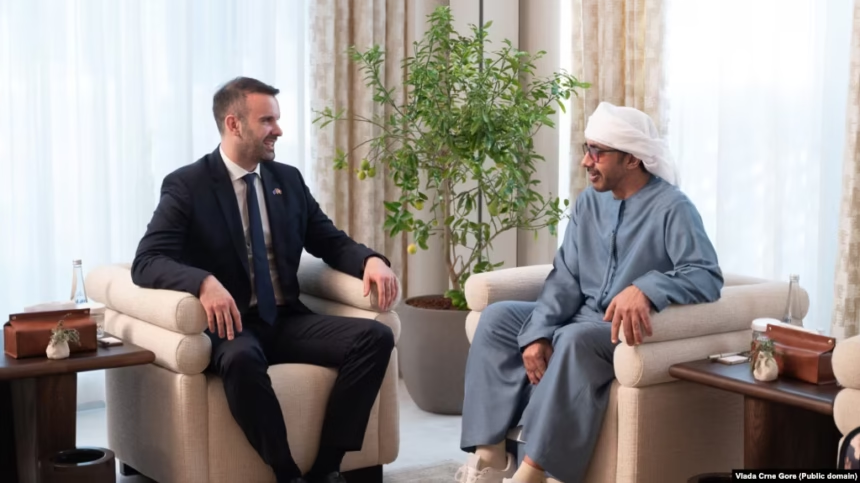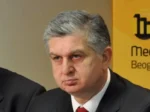Montenegro’s Parliament has reapproved a controversial cooperation agreement with the United Arab Emirates (UAE), focusing on tourism and real estate development, despite strong criticism from civil society and the country’s president.
The agreement, originally signed in March 2025 by Prime Minister Milojko Spajić and UAE Deputy Prime Minister Abdullah Bin Zayed Al Nahyan, was passed again on June 3 with 41 votes in favor out of 81 members of Parliament—after President Jakov Milatović initially refused to sign it, citing constitutional and legal violations.
The repeat vote was held without debate, after the president sent the agreement back to Parliament for reconsideration. The first vote had received 46 affirmative votes.
Civil Society Outcry and Public Protests
Prior to the session, several NGOs staged a symbolic protest outside Parliament under the banner “Honor and Shame Live Forever”, calling for public debate and transparency before final approval. They carried banners featuring the names and faces of MPs who had supported the deal in April.
Activists, including Vanja Ćalović Marković from the Network for Affirmation of the NGO Sector (MANS), criticized the agreement for lacking safeguards against corruption, money laundering, and environmental degradation.
“MPs must stop petty political bargaining,” Ćalović Marković declared.
NGOs argue that the agreement would exempt UAE investors from Montenegrin laws on public procurement and state asset management—placing it at odds with EU regulations on transparency, equal treatment, and environmental standards.
EU Concerns and Risk to EU Accession
The European Union has echoed concerns, emphasizing that all international agreements must align with EU legislation. Civil society groups warn the deal could derail Montenegro’s EU accession process.
On May 29, 86 NGOs presented a Declaration on the Protection of Montenegrin Land to Parliament, prepared by the Engineers’ Chamber of Montenegro, warning of “closed enclaves for the wealthy” that risk social and economic marginalization for ordinary citizens.
Focus on Ulcinj and Alabbar’s Controversial Project
One major concern involves Mohamed Alabbar, founder of Eagle Hills and a key figure behind the UAE initiative. He initially proposed a 99-year lease of Velika Plaža in Ulcinj, where he plans to build luxury tourist and residential complexes.
This proposal has drawn fierce opposition from local authorities in Ulcinj and environmental groups, who argue it bypasses fair bidding procedures and national laws.
MANS warned on May 28 that the deal allows UAE-funded projects to be declared “of public interest”, giving the state the power to expropriate private land at unfair prices.
Activists compared the situation to the Belgrade Waterfront project, where entire neighborhoods were bulldozed overnight to pave the way for a luxury complex—also linked to Alabbar.
Political Context
The agreement was backed by the parliamentary majority composed of Europe Now!, led by PM Spajić, along with pro-Serbian Democratic Front, the Democrats under Deputy PM Aleksa Bečić, and several minority parties. Combined, they hold 52 of 81 seats.
This is the third government formed since the ousting of the Democratic Party of Socialists (DPS) in 2020, ending three decades of rule by Milo Đukanović.







